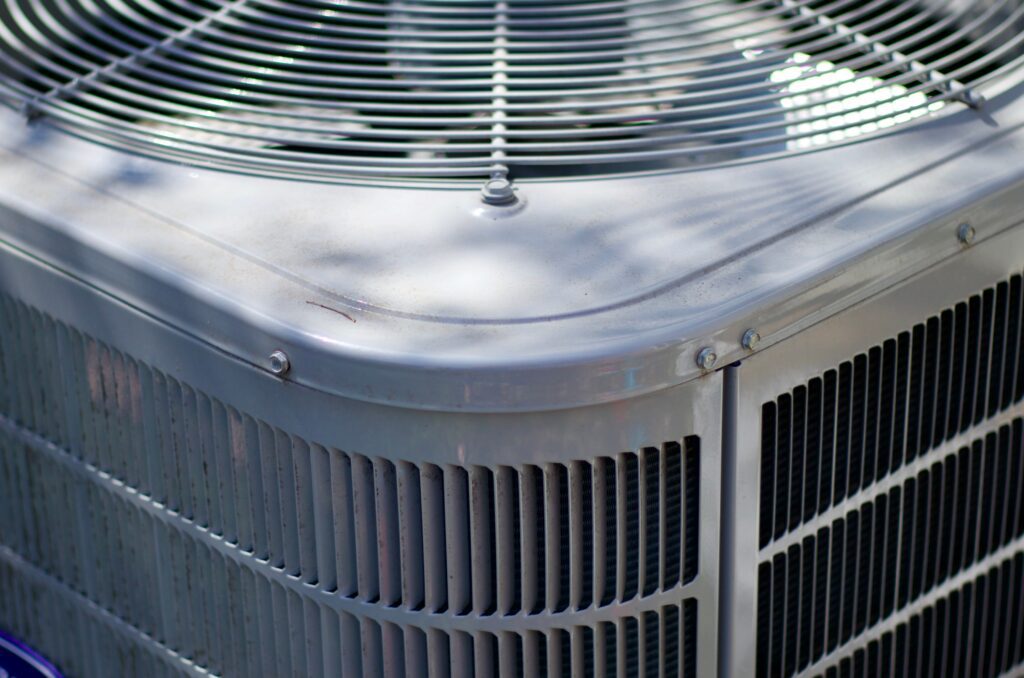If you’re wondering “when should I replace my central air conditioner”, you’re not alone. Many homeowners struggle with this decision, as it involves a significant investment. Understanding the signs that indicate your air conditioner needs replacement can help you make an informed choice. In this article, we will explore the different factors to consider and provide maintenance tips for prolonging the life of your central air conditioner.
Understanding Your Central Air Conditioner
Before we delve into when to replace your central air conditioner, let’s familiarize ourselves with the basics of these systems. Central air conditioning systems work by circulating cool air throughout your home via a network of ducts and vents. They consist of an outdoor unit, containing the compressor and condenser, and an indoor unit that includes the evaporator coil and blower.
The Basics of Central Air Conditioning Systems
A central air conditioner cools your home by extracting heat from the air inside and releasing it outside. The compressor compresses and pumps refrigerant, absorbing heat from indoor air as it evaporates. The condenser then releases this heat outside, allowing the refrigerant to cool and repeat the cycle.
Lifespan of a Typical Central Air Conditioner
Central air conditioners are designed to have a lifespan of around 15 to 20 years with proper maintenance. However, several factors can influence this lifespan, such as usage patterns, climate, and maintenance practices. If your system is approaching or exceeding this timeframe, it might be time to consider a replacement.
Now, let’s take a closer look at the components that make up a central air conditioning system. The outdoor unit, also known as the condensing unit, houses the compressor and condenser. These components work together to pump refrigerant and release heat. The compressor is often referred to as the heart of the system, as it plays a crucial role in the cooling process. It compresses the refrigerant, increasing its temperature and pressure, before sending it to the condenser.
Inside your home, the indoor unit contains the evaporator coil and blower. The evaporator coil is responsible for absorbing heat from the indoor air, allowing the refrigerant to evaporate and cool down. The blower, on the other hand, circulates the cooled air throughout your home via the ductwork. It ensures that every room receives an adequate amount of cool air, providing you with a comfortable living environment.
When it comes to the lifespan of your central air conditioner, it’s important to consider how often you use the system and the climate you live in. If you live in an area with hot and humid summers, your air conditioner may have to work harder and run for longer periods, potentially shortening its lifespan. Additionally, regular maintenance, such as cleaning or replacing air filters, can greatly extend the life of your system.
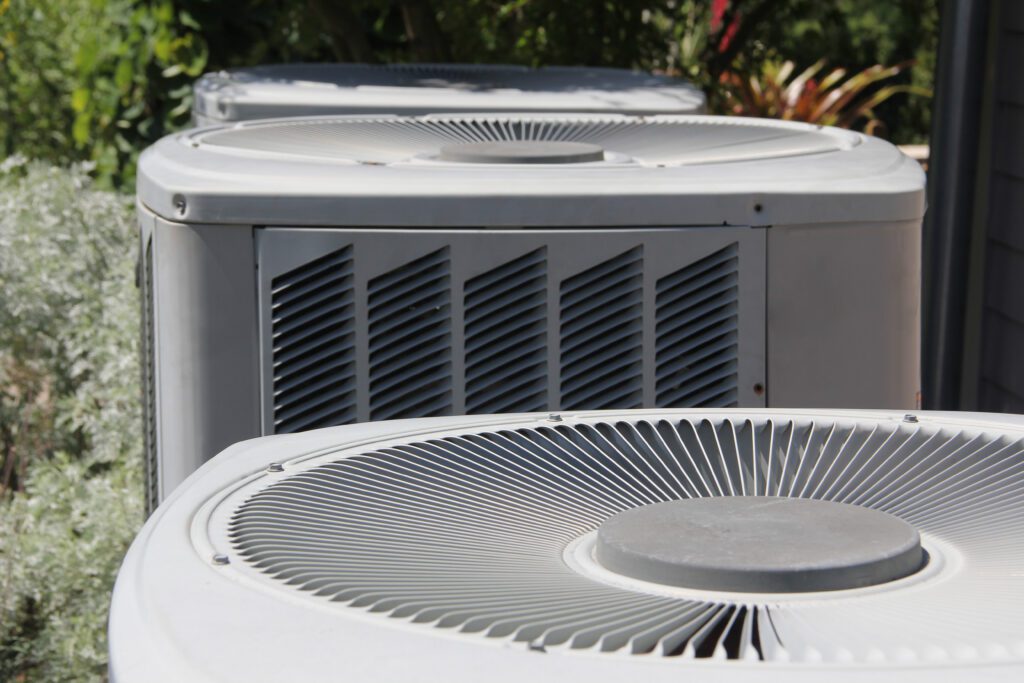
Signs Your Air Conditioner Needs Replacement
While the lifespan is a good indicator, there are specific signs that indicate it’s time to replace your central air conditioner. Pay attention to the following:
Decreased Cooling Efficiency
If you notice that your air conditioner is struggling to cool your home as effectively as it used to, it could be a sign of declining efficiency. Aging systems often become less efficient, resulting in uneven cooling and increased energy consumption.
Frequent and Costly Repairs
If you find yourself calling for repairs more frequently and they’re becoming increasingly expensive, it might be more cost-effective to replace your air conditioner. Constant repairs can be a sign that your system is reaching the end of its lifespan.
Unusual Noises and Smells
Unusual noises, such as grinding, squealing, or banging, can indicate significant issues with your air conditioner. Similarly, strange smells, particularly musty or burning odors, could suggest a malfunction that requires immediate attention.
However, there are a few more signs that you should keep an eye out for when considering whether to replace your air conditioner. One such sign is poor airflow. If you notice weak or inconsistent airflow coming from your vents, it could be a sign that your air conditioner is on its last legs. This can be caused by a variety of factors, including clogged filters or a failing blower motor.
Another sign to watch out for is an increase in humidity levels within your home. Your air conditioner plays a crucial role in dehumidifying your indoor space, so if you start noticing excessive moisture or a clammy feeling in the air, it could be a sign that your system is no longer able to effectively remove humidity.
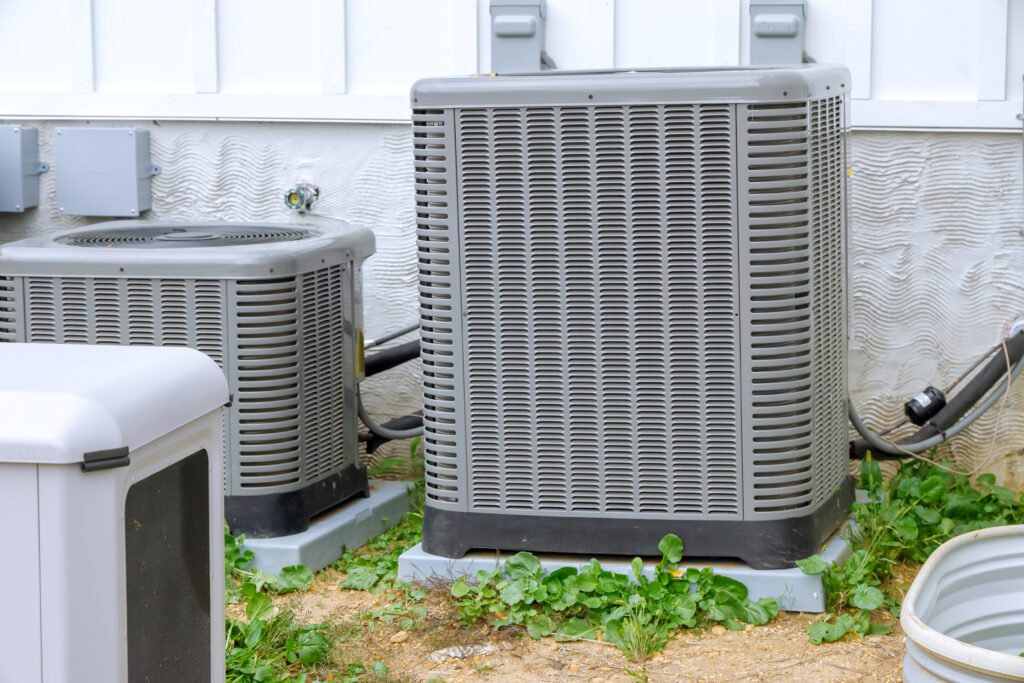
Factors to Consider Before Replacement
Before making the decision to replace your central air conditioner, consider the following factors:
Age of Your Current System
As mentioned earlier, the age of your air conditioner is an essential factor. If your system is approaching the end of its expected lifespan, it’s worth considering a replacement, especially if it’s exhibiting signs of declining performance.
Let’s delve a bit deeper into the age factor. Air conditioning systems typically have a lifespan of around 10-15 years. However, this can vary depending on various factors such as maintenance, usage, and environmental conditions. If your system has been diligently maintained and is still performing well after its expected lifespan, you might be able to squeeze a few more years out of it. On the other hand, if your system is constantly breaking down, requiring frequent repairs, and struggling to keep your home cool, it might be time to bid farewell to your faithful old companion.
Energy Efficiency Ratings
Newer air conditioning systems are designed to be more energy-efficient, which can lead to significant savings on your energy bills. Look for systems with high SEER (Seasonal Energy Efficiency Ratio) ratings, as they indicate better energy efficiency.
When it comes to energy efficiency, it’s not just about saving money. It’s also about reducing your carbon footprint and being environmentally conscious. By upgrading to a more energy-efficient system, you are not only benefiting your wallet but also contributing to a greener future. Additionally, many energy-efficient systems come with advanced features such as smart thermostats and variable-speed compressors, further enhancing your comfort and control over your indoor climate.
Size and Capacity of the New System
Proper sizing and capacity are crucial for optimal performance. Consult with an HVAC professional to determine the right size and capacity for your home. An oversized or undersized unit can lead to inefficient cooling and increased energy consumption.
Let’s talk about sizing for a moment. It’s not just about the physical dimensions of the unit but also about its cooling capacity. A system that is too small for your home will struggle to cool it adequately, resulting in discomfort and potentially higher energy bills as it runs continuously. On the other hand, an oversized system might cool your home quickly but will frequently cycle on and off, leading to inefficient operation and unnecessary wear and tear on the components. A professional HVAC technician will perform a load calculation to determine the right size and capacity for your specific needs, taking into account factors such as insulation, windows, and the layout of your home.
Considering these factors before making a decision will help you choose the best replacement option for your central air conditioner. Remember, it’s not just about the upfront cost but also the long-term benefits and savings that a new system can provide. So take your time, do your research, and consult with professionals to make an informed choice that will keep you cool and comfortable for years to come.
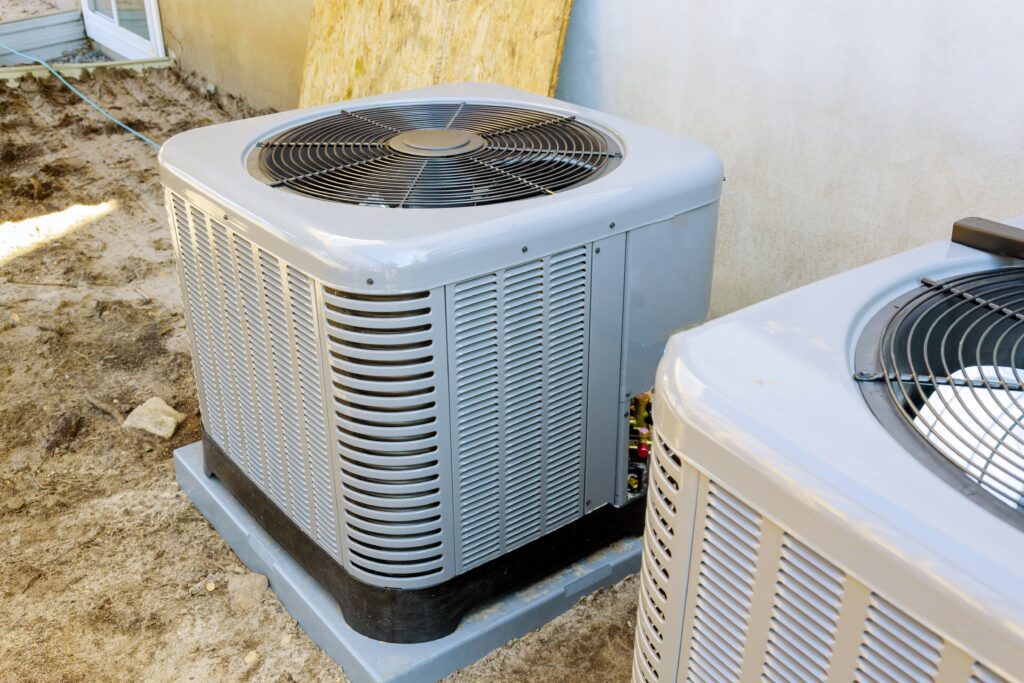
The Replacement Process
Once you’ve decided to replace your central air conditioner, follow these steps for a smooth replacement process:
Choosing the Right HVAC Contractor
Research and select a reputable HVAC contractor to perform the installation. Look for licensed professionals with experience in air conditioner replacements. Request multiple quotes to compare prices and services.
Installation and Testing of the New System
Once you’ve chosen a contractor, they will handle the installation process. They will remove the old system, install the new one, and ensure it’s functioning correctly. Testing is crucial to verify that the system is cooling effectively and efficiently.
Maintenance Tips for Prolonging Air Conditioner Life
To maximize the lifespan of your new central air conditioner and keep it running smoothly, follow these maintenance tips:
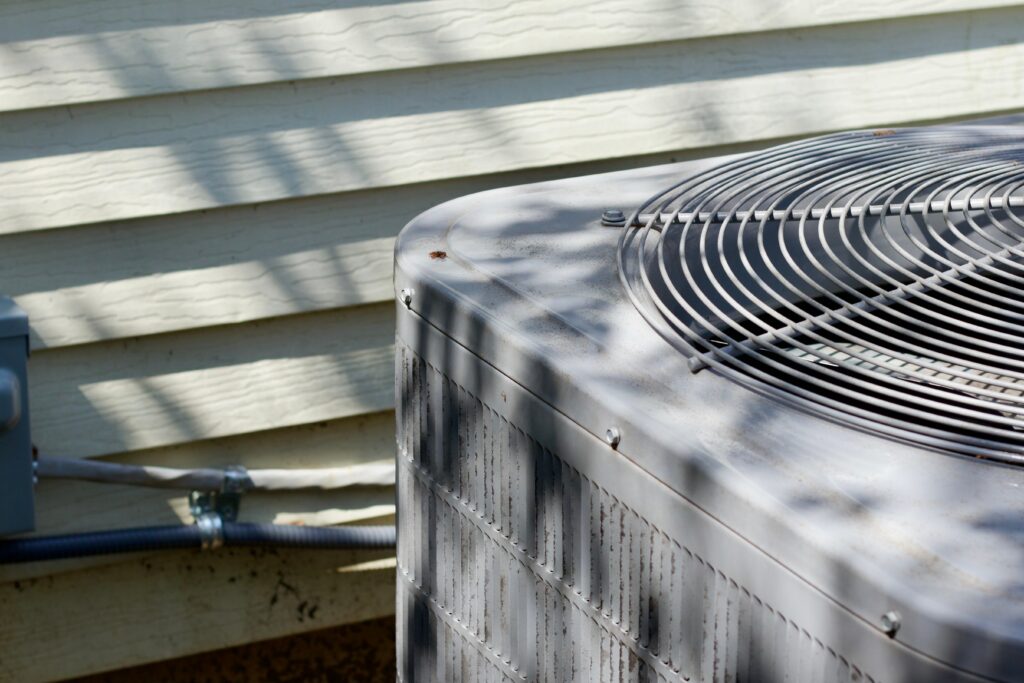
Regular Cleaning and Servicing
Keep your air conditioner clean by regularly cleaning or replacing the air filters. Schedule professional maintenance at least once a year to ensure the system is in optimal condition and to identify any issues early on.
Proper Use and Care
Avoid placing objects near vents or obstructing the airflow. Close doors and windows when the air conditioner is running to maintain cool temperatures efficiently. Use programmable thermostats to regulate temperature and reduce unnecessary cooling.
Upgrading and Replacing Parts as Needed
If you encounter any issues or notice parts that require replacement, don’t hesitate to address them promptly. Timely upgrades and replacements can prolong the life of your central air conditioner and maintain its efficiency.
In conclusion, replacing your central air conditioner should be considered when signs of declining performance, frequent repairs, and increasing age become apparent. Remember to factor in energy efficiency ratings and proper sizing when selecting a new system. Following regular maintenance practices will also help to prolong the life of your air conditioner. By making informed decisions and taking proper care of your system, you can ensure a comfortable and efficient cooling experience in your home for years to come.

